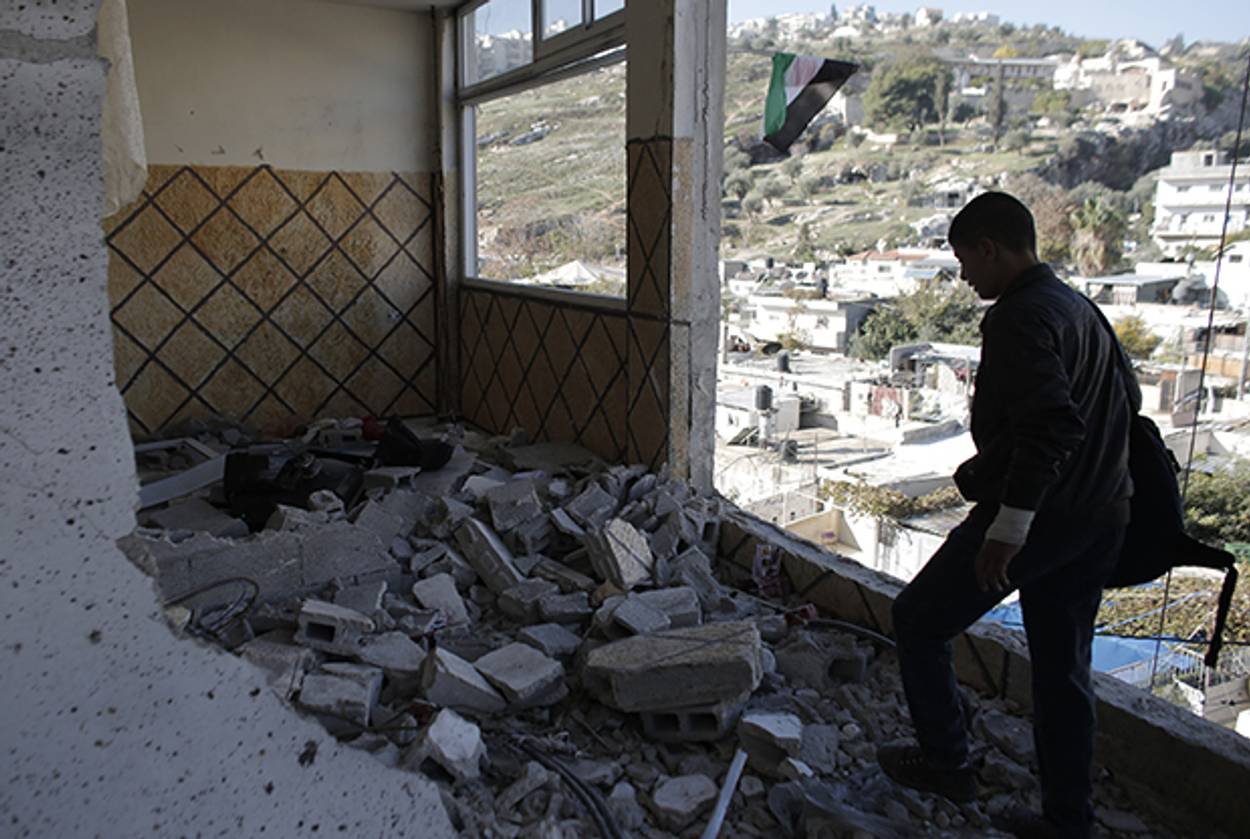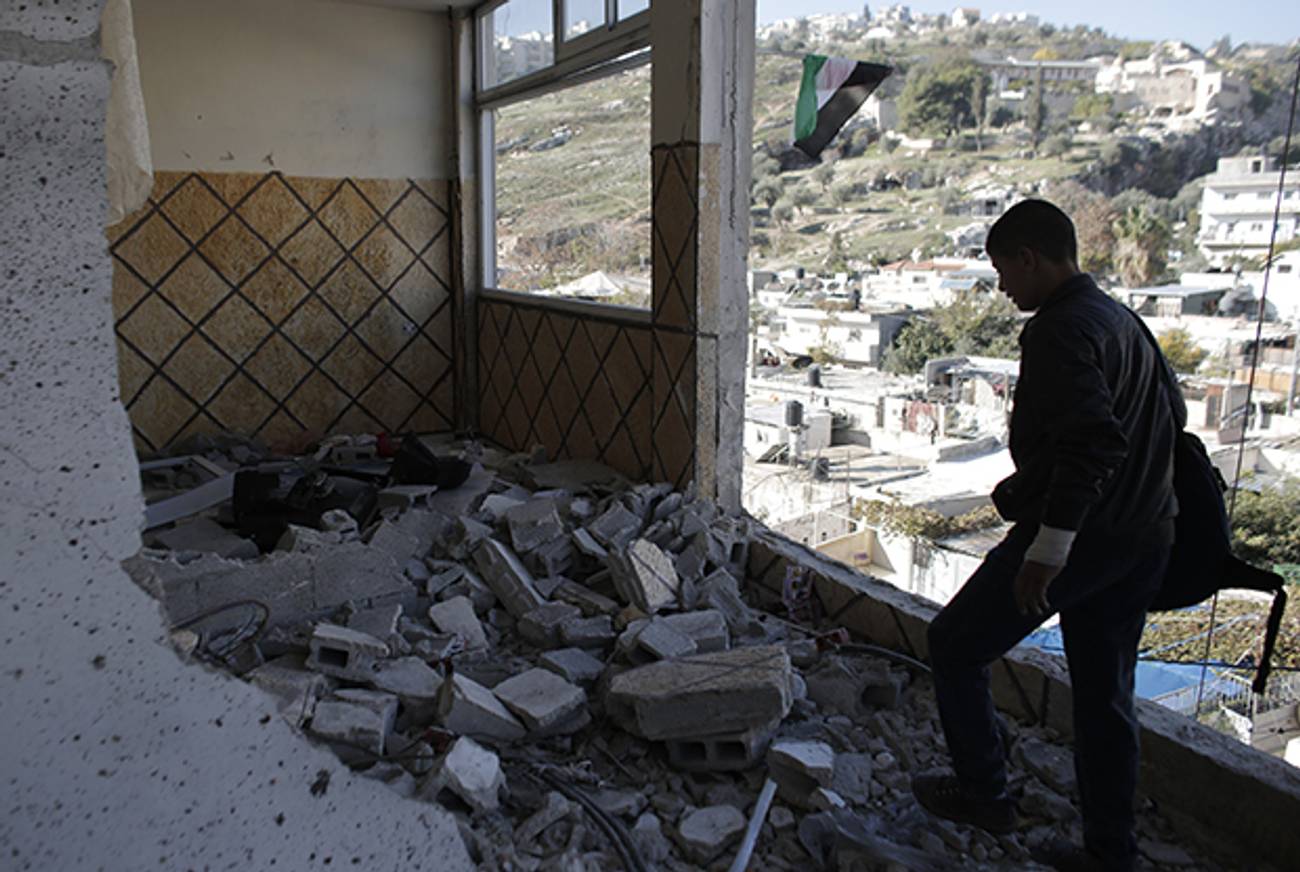Study Finds Israeli House Demolitions Deter Terrorism
But do the ends justify the means?




If there’s one thing the media seems to be sure about regarding Israel’s recently renewed practice of demolishing the homes of Palestinian terrorists, it’s that it doesn’t actually deter terrorism. According to the New York Times, no less than an Israeli military commission in 2005 “found that it [home demolition] rarely worked as a deterrent and instead inflamed hostility.” The Wall Street Journal similarly reports that “a 2005 study by the Israeli military recommended ending the practice after finding demolitions didn’t deter potential attackers.” Even the U.S. State Department has echoed this line in opposing the home demolitions, labeling them “counterproductive.” But a new study threatens to upend this conventional wisdom, just as significant flaws have been brought to light in the earlier investigation.
In The New Republic, Yishai Schwartz reports on a forthcoming study in the Journal of Politics that constitutes the first systematic academic investigation into the efficacy of Israeli home demolitions in reducing terrorism. What the researchers found was the opposite of what had long been presumed.
The analysis found a strong correlation between demolitions and subsequent suicide attacks. …[P]unitive demolitions led to a significant decrease in terror attacks, between 11.7 and 14.9 percent, in the months immediately following the demolition. The study suggests that, at least in the aggregate, terrorists can be understood as “rational actors”: “The results support the view that selective violence is an effective tool to combat terrorist groups and that indiscriminate violence backfires.”
But what about that 2005 recommendation by the Israeli military commission? It turns out there was less to it than meets the eye. Writes Schwartz:
The problem is, the commission conducted no serious study of the demolitions’ effects, and the latest evidence actually points in the opposite direction. The 2005 Times article on which much of the subsequent coverage seems to have been based is itself an overstatement of a contemporaneous account in the Israeli newspaper, Haaretz. But Haaretz made no claims about conclusive findings, simply stating that the military committee recommended ending the program and referencing a general, preliminary “study of the first 1000 days of the conflict” from 2003 that merely stated, “as of today, there is no proof” of effective deterrence from the demolitions.
The author of the Haaretz story, Amos Harel, told me that the committee wasn’t primarily intended as an objective evaluator, but as professional cover for the political echelon’s decision. Its recommendation—to end the demolitions—was largely a foregone conclusion.
Moreover, the general who led the commission “explicitly dismissed the idea that there had ever been a specific analysis or determination rejecting the deterrent effects of the program.” In fact, he said, “‘most of the professional side’—meaning the military personnel and members of Israel’s internal security service—actually supported continuing the demolitions due to first-hand experiences with families turning in would-be terrorists.”
This revelation exposes a serious reporting failure by many major media outlets who trumpeted the commission’s purported finding. But as Schwartz notes, it does not actually settle the question of whether or not the demolitions are justified. That, he notes, is a moral question, and one on which the three authors of the new study disagree. For his part, Schwartz comes down against the practice, arguing that “traditional legal and moral thinking lend strong support” to the “intuition that the cost of the demolitions decisively outweigh their marginal benefits.”
Read the entire investigation in The New Republic, which includes a detailed history of the demolition practice and the debate over its morality, here.
Yair Rosenberg is a senior writer at Tablet. Subscribe to his newsletter, listen to his music, and follow him on Twitter and Facebook.